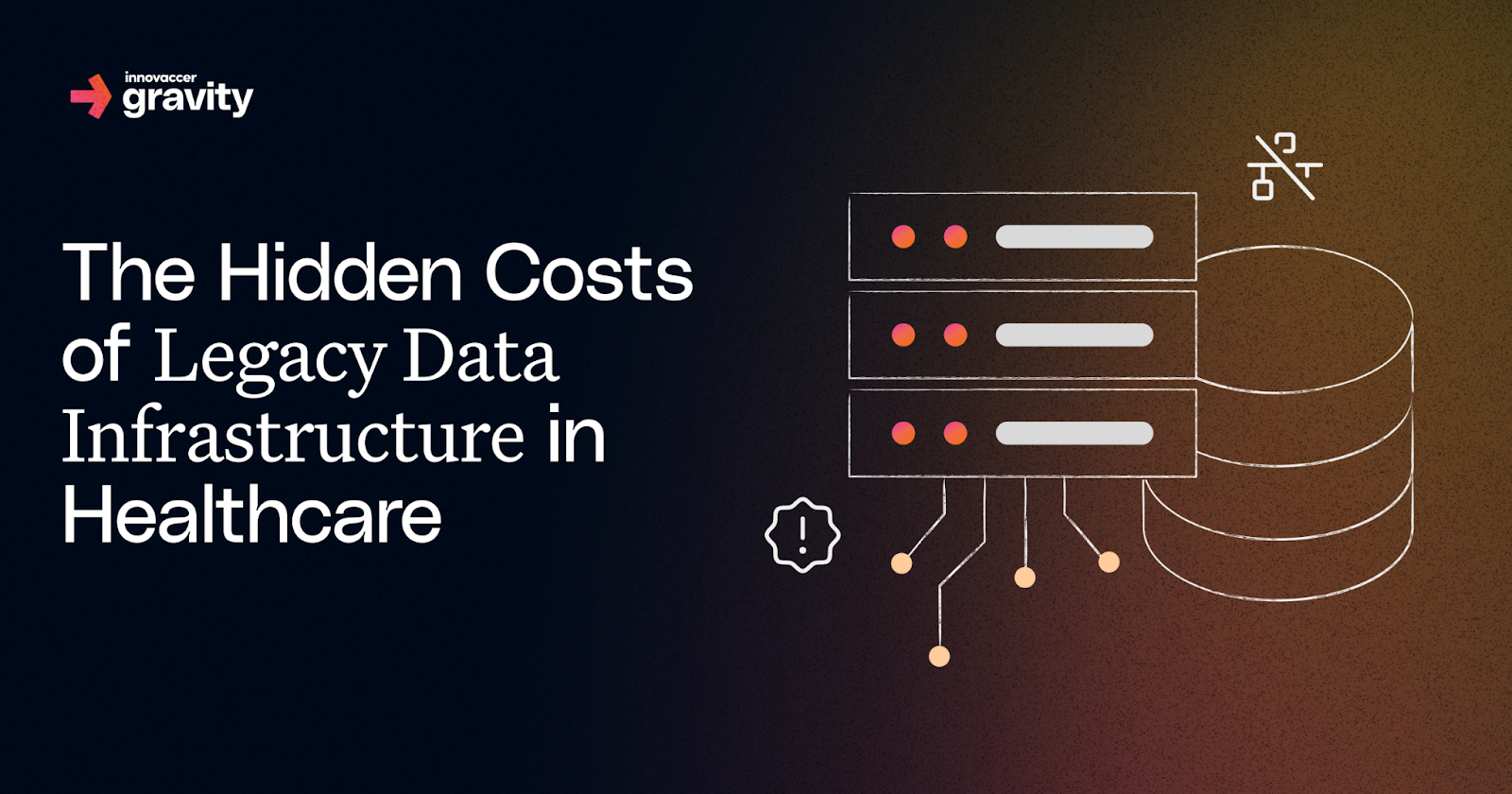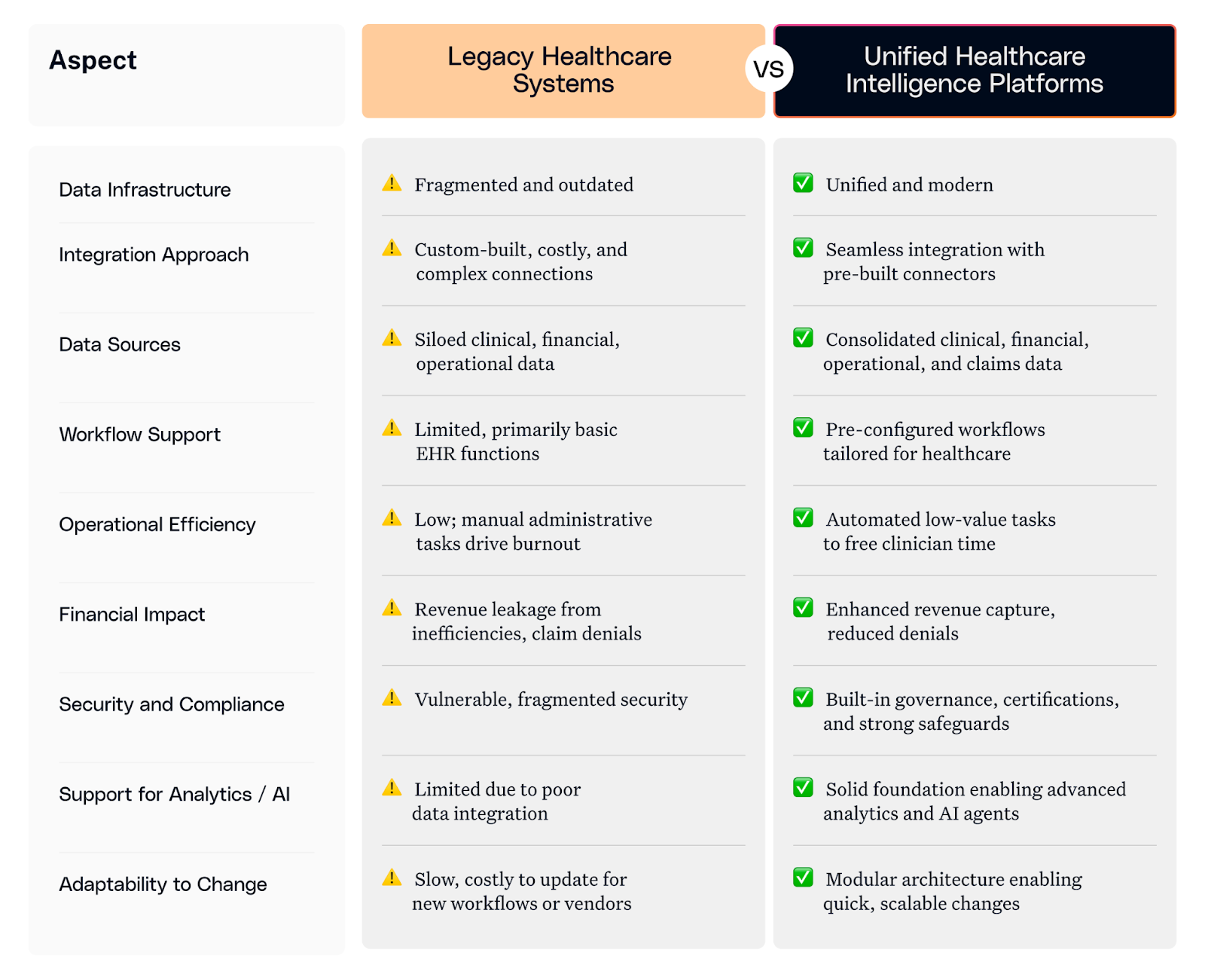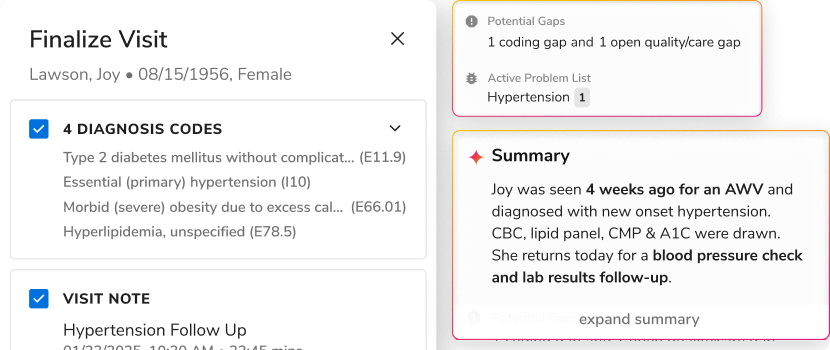The Hidden Costs of Legacy Data Infrastructure in Healthcare


Margins in healthcare are slimmer than ever, yet many health systems continue to operate on outdated technology, losing millions every year. Once a stable backbone, legacy data infrastructures are unable to keep up with the demands of modern healthcare. While legacy EHRs still run the basics, they weren’t built for modern healthcare data integration and today’s complex healthcare challenges.
Every workaround adds a different layer of complexity, and every delay chips away at both revenue and patient outcomes. This mounting strain has sparked a growing realization among healthcare leaders: stability alone is no longer enough. The hidden costs of clinging to legacy systems, such as lost revenue, inefficiencies, and growing risks, are simply too high to ignore.
To move forward, healthcare organizations are turning to healthcare intelligence platforms. These solutions are designed not just to replace outdated systems, but to tap into the full value of data by unifying workflows, strengthening security, and enabling smarter, faster decisions.
What are the Hidden Costs of Legacy Systems?
At first glance, legacy EHR systems may seem like a necessary expense. They are stable enough to run the basics and familiar enough for clinicians to use. But beneath the surface, they incur hidden costs that slowly drain financial and operational health. Here are the four biggest reasons:
Mounting Integration Expenses
Legacy systems often demand costly and custom-built connections every time a new workflow or point solution is added. As per reports, 65% of healthcare systems see legacy technology as their biggest IT challenge. Despite nearly 75% of providers increasing their IT spending, most continue to struggle with integrating point solutions to their existing EHRs. This not only leads to wasted investments but also millions of dollars lost on projects that rarely give meaningful results.
Additionally, the delays or failures in integration can disrupt regular operations and limit the organization’s ability to adopt innovative digital health solutions. Over time, these expenses can accumulate, leading to a significant hidden cost that diminishes margins.
Operational Drag and Burnout
When healthcare data integration and interoperability are poor, staff end up working harder to connect information together. They spend valuable time sifting through fragmented records, while administrators chase down data across systems. On average, clinicians spend twice as much time on EHR-related administrative tasks as they do on patient care. This not only fuels frustration but also causes burnout. The ripple effects of this are massive: lowered productivity, staff turnover, poor patient experiences, and increased error rates.
Cybersecurity Exposure
The vulnerability of legacy healthcare data platforms was most evident during the Change Healthcare cyberattack in early 2024. Nearly 70% of US providers and payers were affected, forcing healthcare organizations to divert their resources into emergency fixes. Legacy infrastructures are more vulnerable to such attacks due to their fragmented EHR integrations and a lack of a unified integration strategy. The average healthcare data breach now costs $9.48 million per incident , a risk compounded by outdated systems.
Each disconnected system in a legacy infrastructure acts as a weak link, making it harder to ensure consistent healthcare interoperability. A modern health data platform is needed to circumvent such risks and ensure the safety of patient data.

Revenue Leakage
Legacy healthcare technology platforms not only slow operations but are also responsible for draining healthcare organizations of billions of dollars in revenue each year. The continued dependence on outdated technology creates inefficiencies at every level, from integration costs to clinical workflows. Studies reveal that organizations lose more than $8 billion annually because of these outdated systems, largely from communication delays and extended patient stays.
Besides operational inefficiencies, legacy systems also drain revenue through compliance gaps and reimbursement challenges. More often than not, legacy systems are unable to keep up with new regulatory requirements and payer mandates. As a result, providers face higher claim denials and delays in reimbursement. They may also incur costly penalties for non-compliance. Over time, these issues accumulate into millions in lost revenue, funds that could otherwise be reinvested into patient care and innovation.
Unified Healthcare Intelligence: How Integrated Systems Break Silos
The increased costs associated with legacy systems can really be traced to one problem: an outdated, fragmented infrastructure that's unable to evolve with modern healthcare.
Healthcare intelligence platforms address that limitation by seamlessly integrating data in healthcare. By unifying data from multiple sources — clinical, financial, and operational systems — they mitigate the need for customized integration, increase data quality, and establish a uniform foundation for AI and analytics. Unlike a horizontal digital health platform, Healthcare intelligence platforms are made for the industry. With built-in compliance, domain expertise, and pre-configured workflows, such solutions directly address healthcare’s unique challenges.

Also read: Value-based care requires moving to a consolidated Healthcare Intelligence Platform
How Gravity by Innovaccer Helps Eliminate Hidden Costs
Gravity by Innovaccer has been designed to reverse these issues by serving as a unified healthcare intelligence platform bringing together data and AI, all within a modern stack.
It consolidates clinical, financial, operational, and claims data into a single source of truth. This ultimately not only reduces expensive integrations, but also assures greater quality of the data used for analytics, AI agents, or decision making.
Organizations can use Gravity to:
- Decrease integration expenses by utilizing 200+ pre-built connectors, 6,000+ data quality rules, and a modular architecture that takes away the headache and expense of custom one-off efforts.
- Reduce wasted operations with AI agents that handle repetitive tasks like scheduling, documentation, and prior authorizations, so clinicians and staff can spend more time on patient care and other high-value work.
- Enhance financial performance through improved revenue capture, eliminated claim denials, and support of value-based models.

- Elevate patient experience through data-driven engagement, faster scheduling, and personalized care journeys.
- Gain confidence in security and compliance through built-in governance, certifications, and protections for patient data. This is further strengthened by Gravity Shield, a multi-layered AI security framework for safeguarding applications, agents, and data. It ensures healthcare organizations can innovate with AI securely while staying aligned with HIPAA and other regulatory standards.
By unifying disjointed systems, Gravity helps healthcare organizations cut hidden costs and improve the foundation for smarter decisions and better care.
For a deeper dive, download: Why It’s Time for Health Systems to Graduate from Point Solutions to Platforms.
It’s Time to Rethink Your Data Management Strategy
While legacy systems may seem stable, they come with their share of hidden issues that can quietly impact patient care and revenues significantly. A unified healthcare intelligence platform, such as Gravity by Innovaccer, allows providers to eliminate data siloes, decrease expensive custom integrations, and streamline operations.
Investing in a unified healthcare intelligence solution has become more than a technology upgrade; it is now a critical component of sustaining margins and providing smarter care. Legacy stability is no longer enough. Healthcare organizations need to make moves to eliminate hidden costs and extract the full value from their data assets.
Want to see how Gravity by Innovaccer can improve your efficiency and patient outcomes? Connect now.

.png)





.png)









.svg)
.svg)

.svg)

